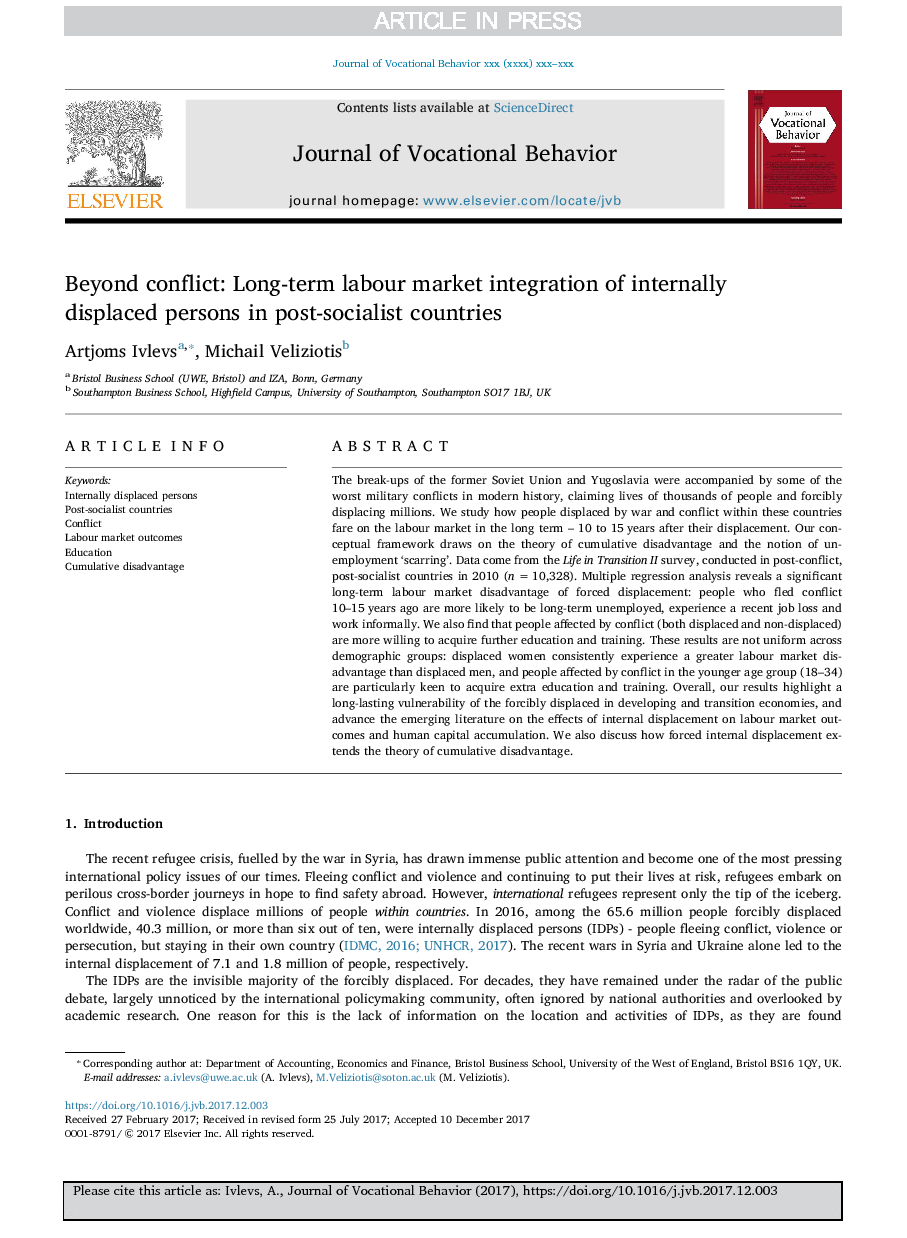ترجمه فارسی عنوان مقاله
فراتر از درگیری: ادغام درازمدت بازار کار آوارگان داخلی در کشورهای پسا سوسیالیستی
عنوان انگلیسی
Beyond conflict: Long-term labour market integration of internally displaced persons in post-socialist countries
| کد مقاله | سال انتشار | تعداد صفحات مقاله انگلیسی |
|---|---|---|
| 101492 | 2018 | 16 صفحه PDF |
منبع

Publisher : Elsevier - Science Direct (الزویر - ساینس دایرکت)
Journal : Journal of Vocational Behavior, Volume 105, April 2018, Pages 131-146
ترجمه کلمات کلیدی
آوارگان داخلی، کشورهای پسا سوسیالیست، تعارض، نتایج بازار کار، تحصیلات، ضرر تجمعی،
کلمات کلیدی انگلیسی
Internally displaced persons; Post-socialist countries; Conflict; Labour market outcomes; Education; Cumulative disadvantage;

